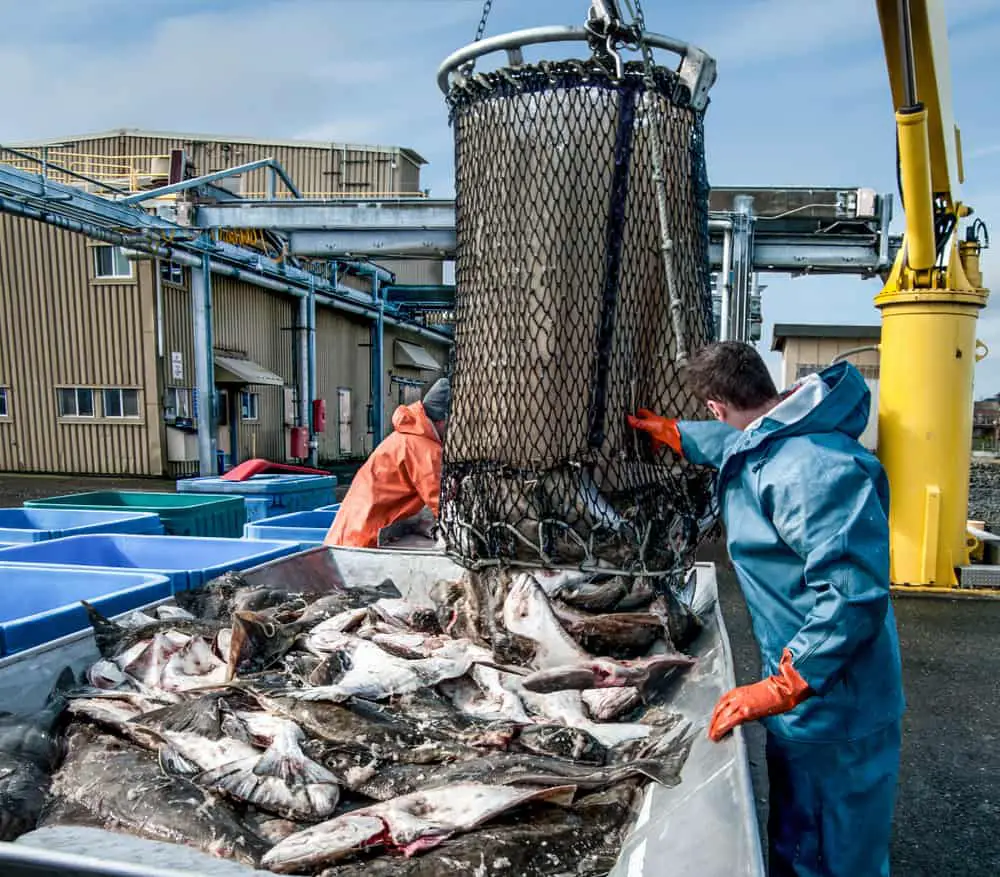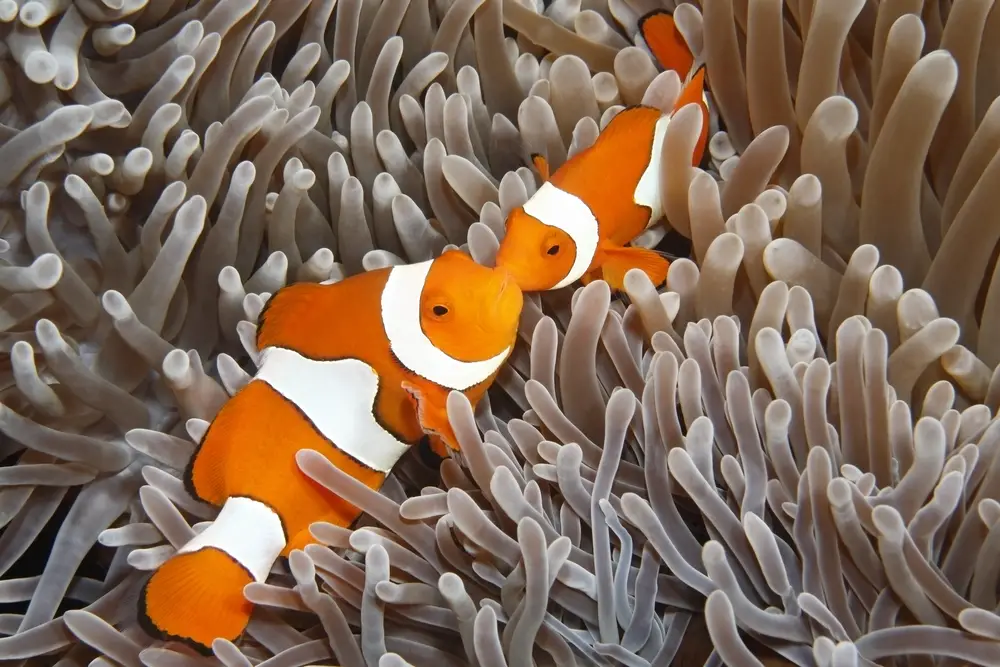Even if fish is meat that comes from the ocean – is it the same as eating a cow? People often put fish in a separate category to other types of meat; in fact, you can even follow a whole diet around it.
Although there are health benefits to this diet – how cruel are we being to the fish and the environment as a whole?
Eating fish can be cruel. Biologists have found that fish do feel fear, conscious pain and are classified as sentient beings. People have argued for decades that fish could not feel pain like other animals, so eating them was considered less cruel. Unfortunately, this statement is untrue.
Since so many people practice vegetarianism and veganism for ethical and environmental reasons, it is paramount that people understand the effects of consuming fish.
Read on to learn how eating fish is cruel and damaging to the environment, two things that are at direct odds with most vegetarianism and veganism tenets.
Fish Feel Pain
Even if studies have come out in the past stating that fish do not feel pain – they have been disproven for the most part.
Fish are not mammals, so they might not experience pain in the same way humans do. However, they do possess many of the same attributes that humans do, even if people have a hard time accepting them.
Fish do have all of the biological components necessary to feel pain, such as:
When humans and other animals are hurt, they go through involuntary physiological responses. These can include hyperventilation, loss of appetite, and inattention to surroundings.
Fish also self-soothe as other animals do. Like humans rubbing their injuries for comfort, researchers have found fish that will also rub injured areas against other objects.
Critics and even scientists argued for decades that any response fish had shown to stimuli were merely reactionary and not caused by conscious feeling.
Tests have proven this argument to be false. Fish not only feel pain, but they also try their best to avoid it, as we do.
Fear and Pain Avoidance
Much like humans and other animals, fish will attempt to escape from distressing situations in fear. While fishing can be a relaxing pastime for people, it is stressful and traumatic for the fish.
Not to mention, most fish caught for food suffocate to death, which is one of the slowest and most agonizing ways to die.
These movements are clear signs of learned fear responses. Small fish cannot exactly fight a net or a fishing line, so they use “flight” to get away from what they perceive correctly as potential threats to their health and wellbeing.
These behaviors are learned by repeated, painful experiences.
Fish Are Sentient, Not Lesser Beings
It takes a great deal of hubris to assume that nothing is going on behind their eyes because fish seem inexpressive to us. It is easy to relate to a chimpanzee because we can see human similarities in their faces.
It is simple to feel compassion for a kitten because we find them precious and soft.
It is unfair to let our empathy stop with animals that seem familiar to us. For some reason, it is much more challenging to consider a fish sentient when it looks nothing like us and lives in a completely different environment.
It lays eggs and breathes underwater using gills. Therefore, it must not perceive anything we do or possess awareness.
However, this is an unfair way to look at a fellow animal. Fish have skeletal systems, cardiovascular systems, and nervous systems.
It is not so outlandish to consider that they experience things. It is merely different things that affect them. Just because we cannot hear them meow or chirp does not mean they do not communicate.
Fish indeed climbed out of the sea hundreds of millions of years ago, allowing us to become what we are somewhere along the line.
Even sea animals like octopuses are far more intelligent and emotionally apt then people ever gave them credit for.
You might be wondering where things like crustaceans fit into this equation, and you are right to think it is a bit different. Prawns, lobster, and even crabs have a different biological makeup. But is it less cruel to eat them? You can find out here:
Fish Is Meat
There is contentious disagreement about whether fish is meat. But let’s clear this up right now - a person who eats fish is, indeed, a meat-eater. The reason fish is not considered meat by some is based on language and religion and not on science or ethics.
The bottom line is that fish have flesh and other animals consume this flesh as food.
It does not get much more straightforward than this. Fish is meat. Therefore, any person who abstains from meat but eats fish does not abstain from meat overall.
While fish meat has its unique texture compared to beef, pork, or poultry. It is not enough to discount its status as meat.
Oysters, on the other hand, still count as meat, but there is debate around whether they are sentient beings. It’s quite an interesting debate for you to check out if this is a fan favorite of yours: Is it Cruel to Eat Oysters?
The pescatarian diet
Pescatarians are vegetarians who still eat fish. This diet and lifestyle have been considered a healthy medium for decades. This doesn’t have to be the case in modern times.
Many perceived health benefits of fish consumption are available in plant-based foods. Not to mention that there are also some drawbacks to eating actual fish too.
If pescatarians eat fish frequently, they put themselves at risk of consuming dangerous amounts of mercury.
Another problem with the pescatarian diet is that it can promote commercial and industrialized fish farming. Large-scale fish farms, like factory beef and poultry farms, are horrible for the fish themselves.
This is not a kinder alternative. The fish are born and raised in bad conditions, not to mention that farmed fish are also more likely to be contaminated.
Environmental Impact

Unloading Fish: Fresh caught halibut drop from the bottom of a transport basket after being hoisted by crane from a fishing boat at a dock in Alaska.
Eating fish is also cruel to the environment and the other animals that rely on fish to survive. The world’s oceans are not limitless, and human interference has caused a great deal of damage to the fish population.
Fish are disappearing from the oceans, and they are not repopulating quickly enough to recover.
Experts believe that the world’s oceans are on track to be depleted of fish by 2048 if drastic changes are not made. This is inconceivable since marine mammals like whales and dolphins rely on eating fish to survive. Many ocean birds do as well.
Most humans, however, do not require fish for food. Also, between ocean pollution and the loss of crucial microscopic organisms, there will be a serious effect on the already changing climate.
We know how popular salmon is – but unfortunately, it is also drastically overfished. In fact, Chinook salmon declined in species abundance by 60% between 1984-2010 due to excessive harvest rates and the negative impacts of hatcheries on wild populations.
If this is something you want to learn to source ethically or avoid altogether, you can read more here: Is it Cruel to Eat Salmon?
By-catch is the term for other species that are accidentally caught in broadly thrown fishing nets.
Fishing net technology was never really advanced to consider marine life, probably for reasons stated above. Because of this, all kinds of non-fish animals like dolphins or turtles get caught in nets and are injured or killed.
Wrap-Up
As nutritious as fish is, we need to be more conscientious about how we consume it. It’s not just about our diet but the sustainability of marine life as a whole.
Eating fish in excess, just like any meat, is cruel because of the ecological stress it creates. Taking a more respectful approach to eating fish is possible, and it is vital for the sake of the world. The oceans make up a vast majority of the planet, and humans must learn to respect the importance of the fish who exist in those waters.
Humans and animals share empathy, meaning empathy should be extended to the thinking and feeling of animals of all kinds.

